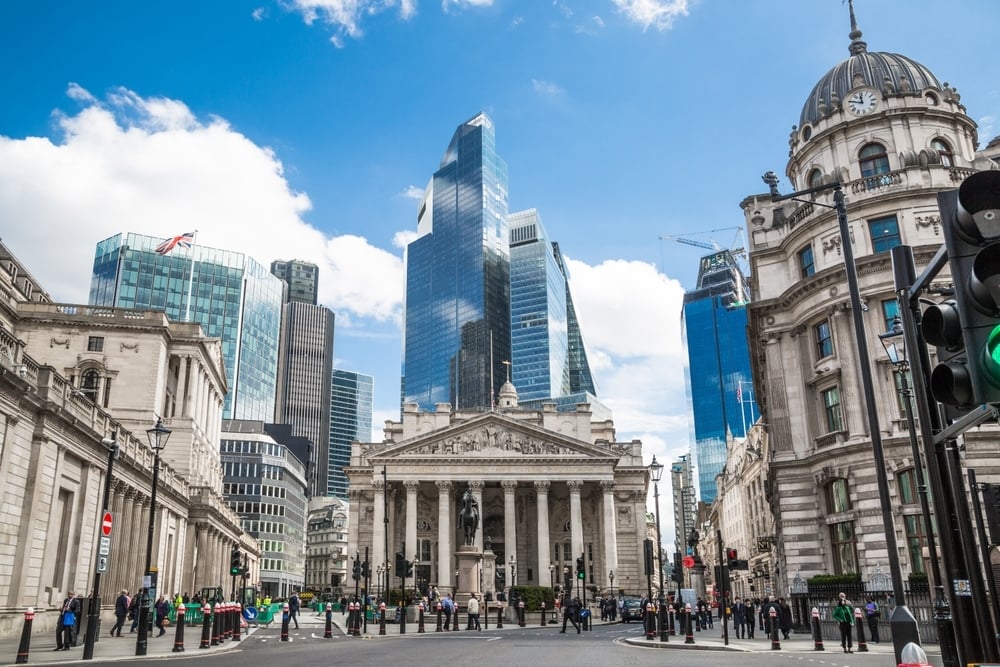Weekly Briefing: UK Outperforms G-7 Economies, Commercial Real Estate Rebounds, Record Number Of New UK Businesses Forecast & Gold Prices Surge
In this week's briefing, we delve into a variety of stories across economy and investment from both abroad and the UK.
We’ll analyse how the UK’s economy is leading its G-7 counterparts, examine the rapid rebound in Britain’s commercial real estate market, and discuss the forecast for a record-breaking number of new business startups in the UK.
Additionally, we’ll look into the recent spike in gold prices and the global economic factors driving this surge.
UK Economy
UK Economy Leads The G-7 In The First Half Of 2024
- The UK economy led the G-7 in the first half of 2024, surpassing both the US and other European nations, enjoying balanced inflation, rising employment, and strong growth, according to the ONS.
- GDP grew by 0.6% in the second quarter, following a 0.7% rise in the first. Inflation in July was 2.2%, with services inflation dropping to a two-year low of 5.2%, showing stable price pressures.
- Alongside GDP growth, employment has surged with the largest hiring increase in months, though wage growth fell to a near two-year low of 5.4%. However, as inflation decreases, real wage growth has seen some welcome increases.
- Aiming to further boost the economy, Starmer’s government is pushing reforms such as updating planning rules and reintegrating workers who left the job market during the pandemic.
- Despite these positive trends, there are concerns about the sustainability of growth. Economists and the Bank of England are cautious, noting potential weaknesses and the risk of inflation if growth continues at its current pace.
- In contrast, Thomas Pugh from RSM UK notes, "The UK economy has exited stagnation and is now on a path to solid growth. If current policies succeed, we could see a sustained period of positive economic momentum," highlighting an optimistic yet cautious outlook.
UK Commercial Real Estate
UK Commercial Real Estate Market Shows Signs of Recovery
- The UK’s commercial real estate market is beginning to recover faster than other major European markets, such as Germany and France, with deal volumes and property values rising notably in the first half of 2024, according to MSCI.
- Industry experts say several factors are driving this notable recovery, including political stability after the general election, stronger economic fundamentals, and increasing rents in key sectors.
- While sectors like warehouses, residential properties, and hotels have seen modest gains, the office market remains under pressure, recording its worst half-year performance since 2001.
- Most investor activity is concentrated in sectors like logistics, residential, and leisure, with companies like Blackstone making significant residential property investments. These sectors are benefiting from structural demand, which is expected to continue supporting their growth.
- "The UK has probably been the fastest recalibrating market," according to Mark Ridley, chief executive of Savills, indicating confidence in the UK real estate market's resilience.
UK Business
UK On Track for Record Number of New Company Creations in 2024
- New data from Beauhurst and Natwest suggests the UK is expected to set a new record for company formations in 2024, with over 800,000 new businesses projected to be registered by the end of the year.
- This surge is said to be fuelled by factors like increased digital adoption, improved access to funding, and supportive government policies that encourage innovation and business creation.
- The technology sector, especially areas like artificial intelligence, fintech, and green technologies, is leading this charge, attracting substantial investment. Healthcare and e-commerce are also seeing strong growth, driven by shifting consumer needs and market trends.
- “The UK’s potential for growth is made clear by the numbers of people now starting their own businesses,” said Paul Thwaite, Natwest’s chief executive.
- As the startup ecosystem continues to thrive, the supportive environment in the UK, including diverse funding options and a culture of innovation, is enabling new ventures to scale and succeed.
- "The UK's entrepreneurial spirit is alive and well, as evidenced by the record number of startups launching this year," said a spokesperson from Companies House, highlighting the positive trend.
Global Economy
Gold Prices Hit Record High Amid US Interest Rate Cut Prospects
- Gold prices have reached new record highs, a record £ 1,942.85 per ounce, driven, according to analysts, by economic uncertainty and expectations that the US Federal Reserve may cut interest rates.
- The potential for US interest rate cuts has grown as economic data suggests slowing growth, prompting a shift in investor strategies. Gold has become more attractive, especially as lower interest rates decrease the opportunity cost of holding non-yielding assets.
- Broader global concerns, such as the risk of recessions in major economies (such as the US) and ongoing geopolitical tensions, are further boosting gold's appeal. Investors are hedging against these risks by increasing their exposure to gold.
- Speculation about the future role of the US dollar as the world’s reserve currency is also adding to the uncertainty, making gold an even more attractive option for investors and central banks.
- Analysts believe that if current economic conditions persist or worsen, gold prices could continue to rise, potentially setting new records as demand for safe-haven assets remains strong.
- "In an environment of such pervasive uncertainty, gold is an essential part of any diversified portfolio," suggests an investment strategist, underscoring gold’s strategic value.
Final Note
Stories in his week’s briefing revealed a mix of positive and cautious economic signals, both at home and overseas
The UK stood out among G-7 nations with robust GDP growth, balanced inflation, and rising employment. Britain’s commercial real estate market also showed a strong rebound, with property values and deal volumes surpassing many European peers. The forecasted record number of new business registrations in 2024 further underscored the UK’s thriving business environment.
In contrast, it can’t be ignored that global economic uncertainties are driving investors towards safe-haven assets, notably causing a surge in gold prices.
Amid this recurring noise though, it is encouraging to see the UK continue to demonstrate notable signs of economic strength and recovery, even as global factors continue to influence market dynamics.
%20(3)%20(2).jpg)









